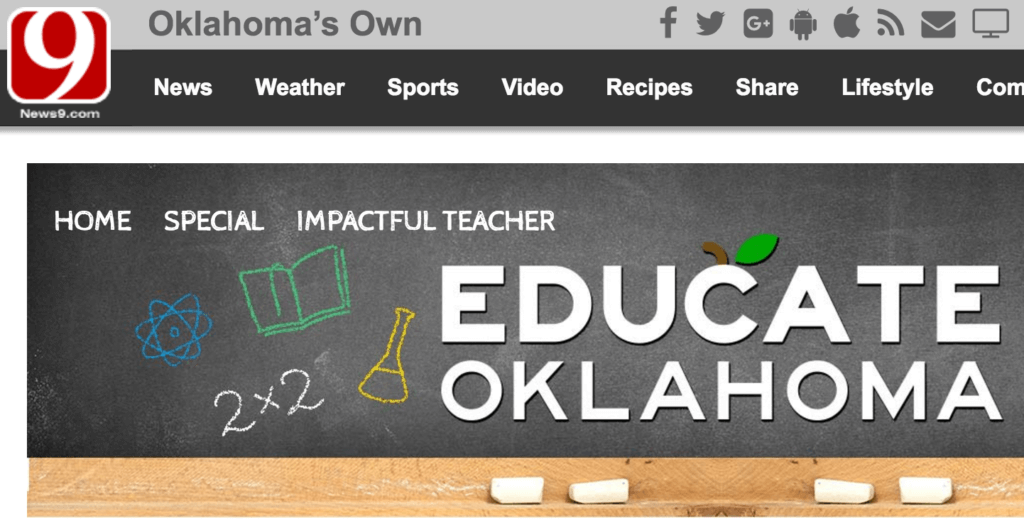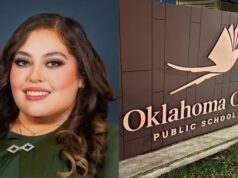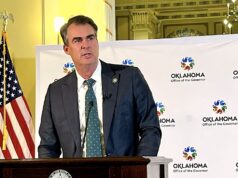There are a lot of reasons why News 9’s special report, Educate Oklahoma, is bound to be honored with national journalism awards.
The biggest reason is found at the beginning of its second hour, as the news team investigates humane, holistic, science-based paths to school improvement.
In Finland, ‘learning … is a joyful thing’
Reporter Justin Dougherty and State School Board member Bill Price visit world-class schools in Finland. They and the viewers are told “people want to do good.” The reason Finland probably has the best schools in the world is that their system is founded on the truth: “Learning … is a joyful thing.” Even better, viewers are reminded that the key to education improvement is trust.
RELATED
Constructive tone helps News 9 ‘Educate Oklahoma’ by John Thompson
Conversely, Finnish teachers who visit America are shocked by the way we treat educators, as well as our ubiquitous phrase, “just a teacher.” The professional autonomy of our teachers has been sacrificed on the altar of increased “output.” To force schools to focus on measurable content and deemphasize far more important tasks, the building of academic and social skills has been undercut. Finnish teachers, however, know that their job is to help their students become better human beings.
Board of Education member Price is an open-minded conservative who has been supportive of reformers, and he did not seem to be taken aback by the Finnish non-punitive team effort to support high-quality instruction. He noted that their high-dollar effort to develop well-trained and supported teachers means that they can focus less on accountability. Like the local business leaders whom I have worked with, Price was open to granting autonomy to the vast majority of teachers.
By the way, Educate Oklahoma shows how learning is a two-way street. Finland is second only to the U.S. (among affluent nations) in terms of its child poverty rate, and the series noted the benefits of early education, which is an area where Oklahoma has often taken the lead. However, it is doing Oklahoma one step better. The most cost-effective early education occurs in the years from birth to the age of 3, before the time when Oklahoma’s well-respected pre-k programs kick in for most children. Finland is starting to provide play-based learning for children as young as 9 months old.
Educate Oklahoma evokes MAPS for Kids days
Ignoring the spin of corporate school reformers, Educate Oklahoma doesn’t try to deny that standardized testing in America has been an appalling disaster. In the name of imposing “rigor” and competition, teach-to-the-test malpractice has often been mandated. The curriculum has been narrowed and much of the joy of teaching and learning has been driven out of the classroom. Students have been indoctrinated into a cynical value system where their job is to parrot back the one “right” bubble-in answer. In turn, creativity and personal responsibility have been undermined in the quest for “accountability.”
Educate Oklahoma brought me back to the days of MAPS for Kids, when a bipartisan coalition of business and community leaders heeded the wisdom of some of the world’s greatest education scholars. John Q. Easton, who later headed the Institute of Education Sciences, came to Oklahoma City and explained why there has never been a documented school turnaround without first building “relational trust.” This is especially true for inner-city schools serving neighborhoods with high levels of generational poverty, incarcerated parents, children who lived in foster homes and homeless shelters, and with low levels of social trust. The progress started by MAPS was cut short, however, by No Child Left Untested, the subsequent micromanaging of teachers and principals, and scorched-earth, winner-take-all competition with charter schools.
Price — like the teachers I know and our unions — worries about failing teachers who might comprise as much as 10 percent of the faculties in places where it is hard (or impossible) to find qualified applicants. That is why a team effort to improve teacher quality should turn the page back to the days of MAPS and, once again, embrace peer review (known as PAR). No other policy has been nearly as effective in removing the bottom 5 percent to 10 percent of teachers. To get back on track to the promising days of MAPS and toward the greatness of Finland, however, we must rebuild trust by replacing test-driven teacher evaluations with proven systems for sharing responsibility for effective teaching.
What works in Iowa
Educate Oklahoma also explored what works in Iowa. Reporter Terry Hood visited that state and learned from its promising efforts. Iowa students show that it is not just people in Scandinavia who want to do good. They demonstrate the joy of learning through project-based class work. In contrast to so-called “performance pay” experiments, Iowa empowers and rewards teachers not for jacking up test scores but for assuming school leadership roles.
Secretary of Education Joy Hofmeister (who took the lead in scrapping the value-added teacher evaluation system mandate that was essentially imposed on the state by the Arne Duncan administration) persuaded the Oklahoma legislature to authorize an Iowa-style, evidence-based teacher-leadership program. Iowa devotes $150 million to that invaluable effort. Unfortunately, we have provided no money for our professional development.
Fortunately, News 9 remains committed to in-depth reporting on education. Let’s hope the rest of the press and patrons remain focused on what it will really take to start to build world-class school systems.























